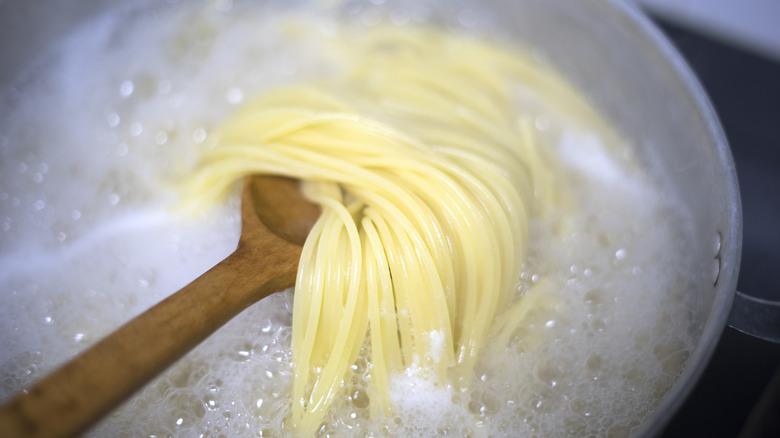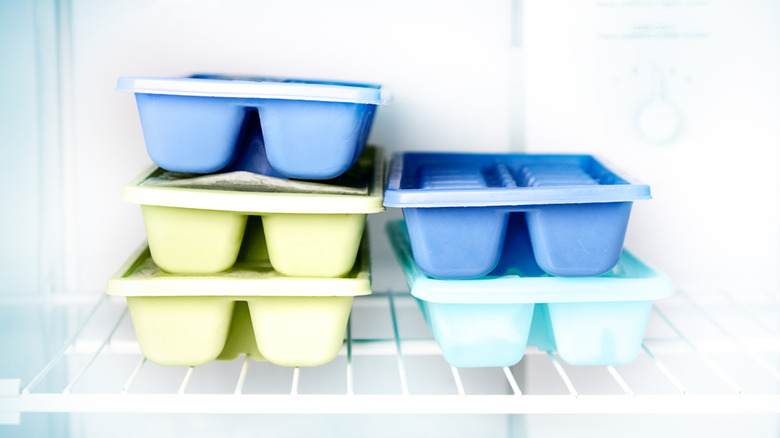You Really Need To Start Freezing Pasta Water In Ice Cube Trays
Boiling pasta can be a bit of a chore — having to wait for the water to come up to temp, constantly hovering over the pot, giving it an occasional stir to make sure the noodles don't stick together, and watching that the water doesn't boil over. But, once it's done, not only do you have the perfect carby vessel for a myriad of sauces you also have liquid gold in the form of all that starchy pasta water. Most of the time, you probably dump it down the drain when straining the noodles, but we're here to tell you that you need to start saving your pasta water and freezing it in ice cube trays.
The reason you want to save pasta water is that it's full of starch, which has boiled off the noodles. This starch not only helps bind sauces to the pasta it emulsifies fats (like butter), creating a rich, creamy texture. This means it can help thicken liquids, like buttery noodle sauces, creamy roux, or your favorite winter soups. Freezing pasta water in ice cube trays, rather than in one big block, means you don't have to hack away at a chunk of ice when you want to use a little bit of it. Individual cubes make it so easy to pluck portions from the freezer and toss them in your pan.
How to freeze pasta water the right way
To concentrate or not to concentrate: That is the question. You can absolutely boil your pasta water down further after removing your pasta so that the water is thicker and the starch is, well, starchier. However, this isn't necessary — your freshly strained pasta water will still add body to sauces and soups. Just make sure, no matter what option you go for, that the water has cooled completely before you start the freezing process (this is to avoid the water sitting in a dangerous temperature range for too long, and to keep hot water from lowering the temperature of other foods in your freezer).
And, while ice cube trays are ideal for starting the process and turning your pasta water into handy little soluble blocks, you might have an easier time if you remove them from the ice cube tray and store them individually in mini freezer bags. This allows you to grab a single portion as and when you want, rather than having to take out the entire ice cube tray and snap some out, which can lead to melting pasta water on your kitchen floor. It's also best to either use up or replace your pasta water cubes every six months.

